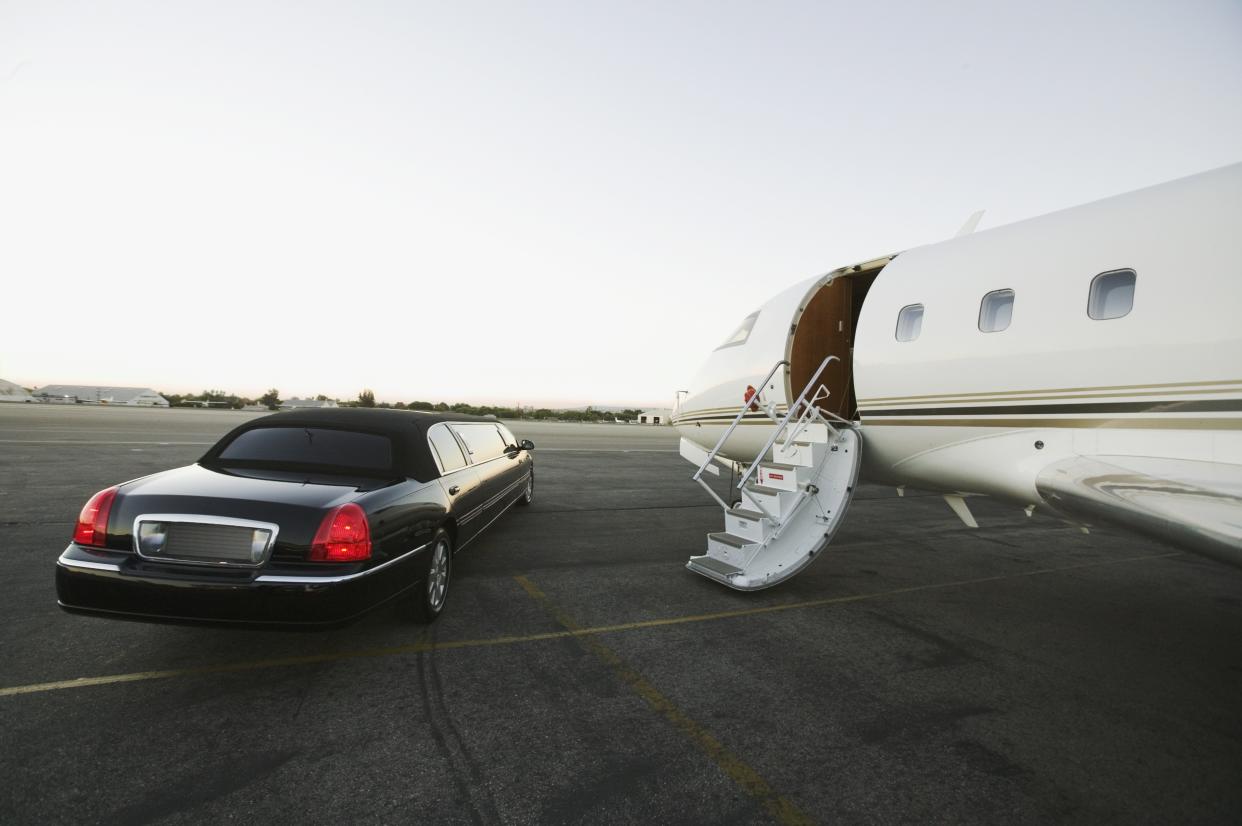5 pieces of financial advice 'Arrested Development' taught us

Any dedicated Arrested Development fan will tell you through tears of laughter that the show's characters aren't exactly the best when it comes to handling their finances.
In the simplest of terms, the show is about the dysfunctional Bluth family living in Southern California. Their successful real estate development company collapses after their father, George Sr., is sent to jail and leaves all of the family's assets frozen. Translation: The family goes from rich to poor in the blink of an eye and struggles to understand what it's like to manage and maintain finances on a responsible level.

Getty
As you could probably imagine, the characters have had some pretty candid dialogue regarding fiscal matters. Here are five practical financial lessons you can learn from the show:
1.Your total wealth is not equal to the total sum of your physical assets.
"Great, so now we don't have a car or a jet? Why don't we just take an ad out in 'I'm Poor' magazine!" –Lindsay Bluth (Season 1, Episode 4)
In this scene, the Bluth's only daughter, Lindsay, is yelling at her brother Michael for selling the company jet. Lindsay, being completely oblivious to anything that has to do with her family's financial standing, automatically makes the assumption that her family is now poor based on the lack of expensive physical assets that they now own. To Lindsay, wealth is equivalent to the hundred-thousand dollar posessions that the Bluth's control.

Getty
Lindsay has no ideas as to how much her family (primarily her father, who is the sole provider for the family) has in savings or what other physical assets her family may own that are of equal or higher value. The total wealth of one's family, or financial dependents, is not a number that can be determined by physically adding together the prices of every item that they own.
2. Be explicit to your dependents about how finances are being handled, where they're being placed, and how they're being majorly saved or spent as it affects them directly.
and
3. Never doubt the revenue or profit that you can make off of what seems like a side business or project.
George Bluth, Sr.: There was $250,000 lining the walls of the banana stand.
Michael Bluth: What?
GB: Cash, Michael!
MB: Why didn't you tell me that?
GB: How much clearer can I say, "There's always money in the banana stand!"
(Season 1, Episode 2)
Throughout the first and second episodes of the show, George Sr. makes the statement "There's always money in the banana stand", the frozen banana stand being the family's side business.

Netflix
What George Sr. doesn't clarify until this scene, however, is that he was not making abstract statements about how potentially profitable the banana stand business is (or how it can be grown to become a major source of income If need be). In fact, what George Sr. meant all along, was that there was physically money inside the walls of the banana stand, which Michael finds out in this scene after he tells George Sr. that the banana stand has been burned to the ground.
Had George been clear about the placement of the money to Michael, the loss of $250,000 could have been avoided and prevented. This news directly affects Michael and his son, as they are primarily dependent on George Sr. and the family business.
George Sr. had first instilled a smart entrepreneurial mantra in Michael, in that he should never miscount the potential profit that the family's local banana stand can bring in. But where he went awry was by hiding from Michael about where finances were actually being kept, and leading him to believe that the mass amounts of money that the family owned were all secured in a banking account.
4. Be aware of average costs of normal household items so that you can budget accordingly, as well as avoid overpaying for something.

Getty
"I mean it's one banana Michael. What could it cost, $10?" –Lucille Bluth (Season 1, Episode 5)
Hopefully, if you're reading this, you're quite aware of the fact that a banana doesn't cost $10.
Lucille, who is notorious for having no conception regarding anything financial, chooses to live in a world where money is an abstract form and she never needs to know the details about how much she's spending or where she's spending it, down to even the most basic of grocery store items.
Keep on top of what you're spending and how much you should be spending on certain items. Don't be a Lucille.
5. Money and physical items cannot, in fact, buy you happiness

Netflix
Michael Bluth: You spent $68 on hair conditioner?
Lindsay Bluth: A small price to pay for self esteem Michael
(Season 1, Episode 2)
When it comes to luxury items, it's okay to splurge every once in a while. In fact, it's encouraged. But spending a larger than necessary amount on an everyday household item in hopes that it will help solve any other non-monetary problems that you're having is both foolish and impractical.
It may be one of the oldest adages in the book, but focusing on purchasing expensive things instead of budgeting and spending in smart ways will only make you less happy in the end. Everything in moderation!
RELATED: Easy ways to put more money in your pocket
More on AOL.com:
Here's a key reason why all of your millennial employees are quitting
What 20-somethings should know about taxes
How to put yourself on a money diet

